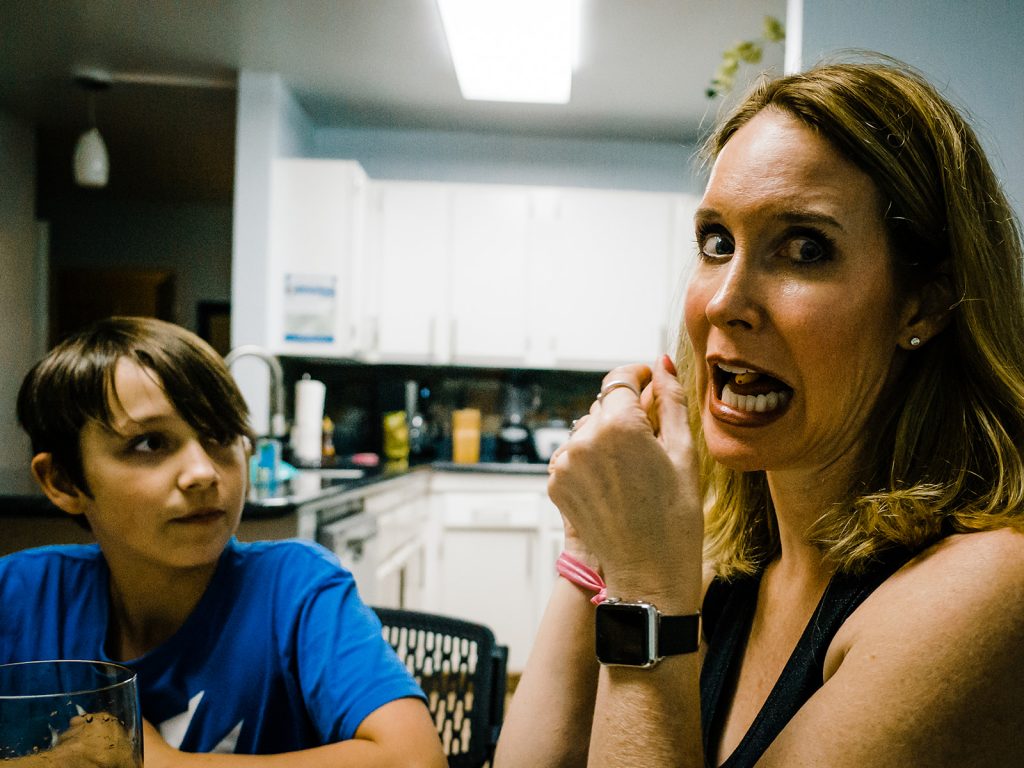The happiest people in the world are the most social. Many of us seek to scratch the itch of happiness that comes from sociality by an addiction to social media – our little pocket size dopamine hitters. However, the little dopamine hits we get from the buzzes and beeps of “likes” does not create the longer-term serotonin in our bodies that is created with embodied synchronous social interaction.
An issue that stands in the way people feeling motivated to just be and interact together is increasing communication anxiety. Even my honors communication students at ASU express nervousness about being in an elevator without their phone, or even calling and talking to a person to order restaurant take-out. When we spend hours online crafting perfectly curated lives and photoshopped selves, there is less time to practice the fine art of conversation.
So what to do? Perhaps one area to seek respite is that we need not worry so much about what we are going to SAY, but rather should be thinking about what we are going to ASK. Indeed, one of the habits of the most empathetic people is their unending curiosity about others. And, the anxiety melts away somewhat when we can consider a conversation as an opportunity to simply learn about others rather than as a dictate to look good or make a point.
The best question askers are vulnerable and willing to learn. Someone who is only trying to prove themselves right will have no problem asking questions. But, beware. People who think they know best cannot even ask the right questions. Asking questions requires close listening to what other people want to talk about, and then encouraging them to say more. Good conversation is not about winning or proving a point, not about discovering weakness in others, but instead about bringing out others’ strengths and understanding why they believe or act the way they do.
A good place to start in conversation, according to Hans-Georg Gadamer is to ensure that the other person is WITH us in the conversation. This could mean lots of things, but for me, it means that we must create relatability. And creating relatability is also about vulnerability. What might this look like?
At school, I oftentimes play a game with others in the elevator with me. Can I create relatability within 15 seconds? Sometimes this means commenting or asking the other about the weather, or the awful parking situation. Other times it means asking, “do you think those orange crumbles on the ground are Cheese-its or Doritos?” In today’s day and age, offering these snippets necessarily also offers the opportunity for me to be rejected or ignored. Perhaps they won’t hear me if they’re wearing headphones, or they will feel irritated that I have interrupted their screen scrolling. And, sometimes that’s the case. However, often, we share a moment of connection, a chuckle, or moment of camaraderie. And, the research shows that even short conversational connections with strangers provides an uplift in our mood.
Another thing to consider that may make conversation less stressful and more inviting is that we do not (and should not) master plan our interactions. We should not think of a conversation as something we conduct. Rather, it’s jazz improvisation. To become good at jazz, we need practice. However, to become a jazz virtuoso, we must also simply listen and let go of the reigns. Where we end up is not so important as the journey.

So, as we find ourselves in the thick of the holiday season, I hope you’ll join me in finding ways that you can create connection and uplift in your own and others lives through those embodied interactions—whether those be in the form of a quick chat with your coffee house barista, or conversationally dancing through questions and curiosities as you visit with friends and family. As you do so, don’t under-estimate the power of food and sharing personal space for making these interactions even more meaningful. Perhaps a potluck or game night is in your future (BeanBoozled is a great one to do with kids)? Or maybe a long overdue skype call with your cousin. If this feels daunting, remember that the most important ingredient for good conversation is curiosity – a childlike skill that only gets more valuable as we age.



